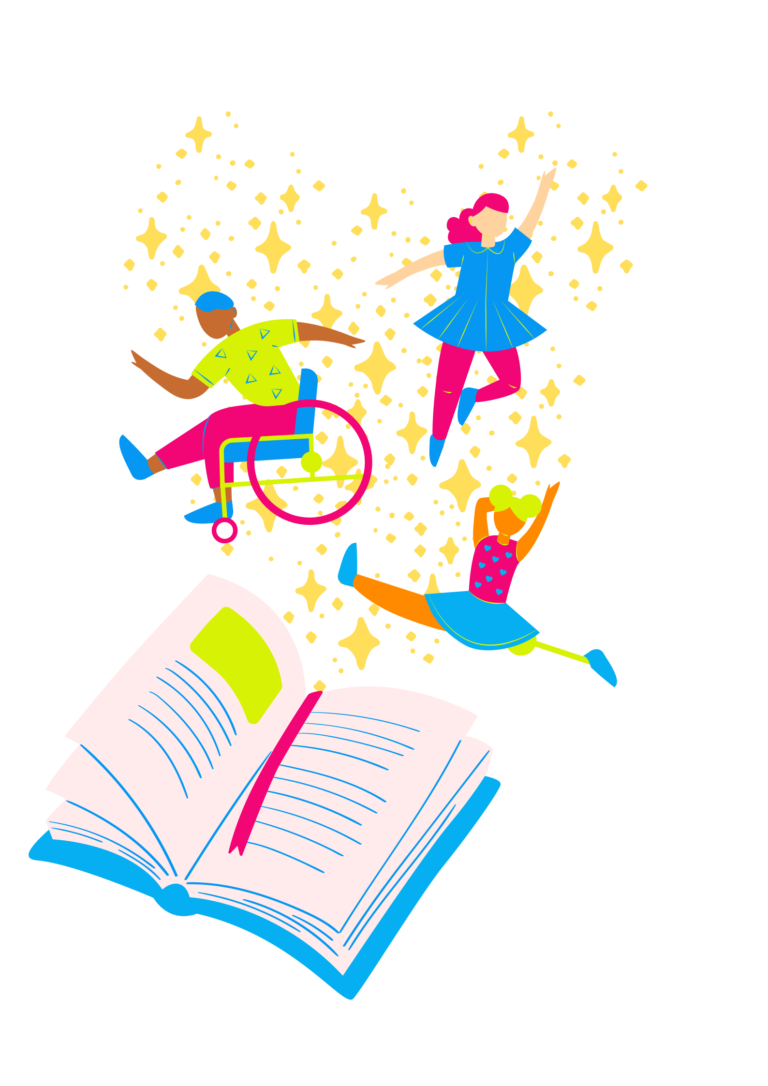ABOUT
The cornerstone of inclusive education is ensuring all learners achieve their full potential, regardless of their disabilities. Inclusive education is at the core of the daily practice of partners in this project; as a result, the motivation for this project is based on their everyday work and initial research. One way to promote inclusion and celebrate diversity in the classroom is through storytelling and through this project, we intend to do precisely that. The EU population is diverse, and that diversity is naturally reflected in the classrooms. Children’s literature is an important tool to teach about diversity and foster inclusive classroom environments. Moreover, it greatly influences students’ lives and plays an important role in early learning environments.
However, while many stories and books are available for students, the field of children’s literature lacks diversity across different areas, including ability and disability (Leahy&Foley,2018). The content of the stories that pupils are exposed to is likely to influence their perception of themselves, their peers and society in general.

Through the development of confidence, we will tackle learning disadvantages and support the prevention of early school leaving. Pupils with disabilities may have average or above average intelligence, but repeated academic failure weakens their confidence and self-esteem. Many also struggle with school success and are particularly at risk of early school leaving. Thus, it is crucial to start strengthening self-confidence in the early years of schooling.
Following the guidebook, we intend to create a collection of short, inspiring stories in e-book format about role models for pupils with disabilities. Truly inclusive classrooms need books and stories that support inclusive goals and offer the possibility for identification for all pupils. Children need good role models to support their development. They look up to various role models that shape their behaviour, their relationships, and the decisions they will make. Moreover, children are affected by the stories they read. Thus, a restricted representation of characters limits pupils’ ability to see themselves and others in those stories.
The partners on this project strive to create and use inclusive educational tools in their daily practice. Moreover, supporting pupils with disabilities with different inclusive and innovative tools is at the core mission of the participating organisations. Creating positive, inspiring stories is one of the ways to support the inclusive goals of all partners involved.

The Role models for pupils with disabilities project is co-financed by the ERASMUS+ program of the European Union, and will be implemented from January 2023 to January 2024. This website and the project content reflects the views of the authors, and the European Commission cannot be held responsible for any use which may be made of the information contained therein.
(Project code: KA210-SCH-B16D7466)
